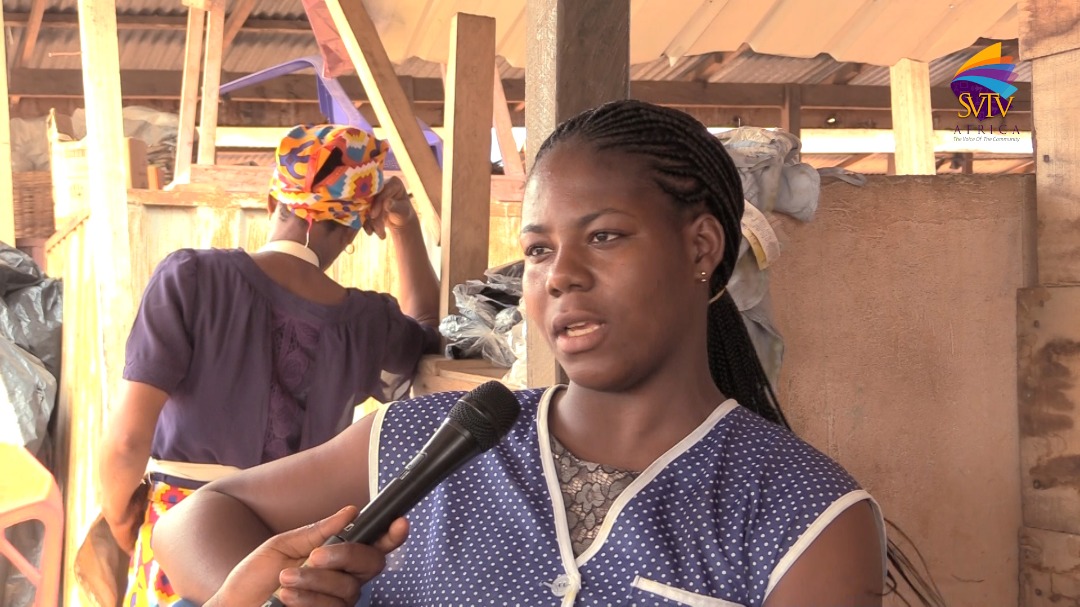Mr. Narteyson, CEO of Summer Soul Constructions, is a Ghanaian entrepreneur based in Kasoa. His company specializes in building materials, particularly in block production, cement sales, and real estate development. Speaking on SVTV Africa’s Daily Hustle Worldwide show with DJ Nyaami, Mr. Narteyson shared his inspiring and challenging journey in the construction business.
According to him, it all began with a simple desire to build a house for his mother. He wasn’t concerned about the location, and when an estate company advertised lands in Kasoa, he went to view the site and eventually purchased a plot. Determined not to waste the investment, he bought blocks to start building.
While buying the blocks, he met a young man who gave him an idea to start his own block factory. The man’s father owned a similar business, and through their conversation, Mr. Narteyson became interested. He inquired about the price of the block-making machine, but it initially discouraged him. Fortunately, the young man connected him to some Chinese suppliers. At the time, the dollar exchange rate was GHC7, but by the time he had gathered enough funds, the rate had doubled to GHC14. He still went ahead to pay, and three months later, the machines arrived.
He then acquired a new plot near the roadside with access to electricity, and the area that was once dominated by cassava farms began to develop into a vibrant community. The same young man who helped him later moved to the UK, but stayed in touch and even arranged people to support Mr. Narteyson in his operations. Recently, however, the man has been facing difficulties abroad, and Mr. Narteyson has offered him the opportunity to work back in Ghana on commission — for every 1,000 blocks sold, he earns GHC1,000.
In the beginning, Mr. Narteyson faced several challenges. Workers were under-producing and misreporting stock. During a two-week hospitalization, his cousin stole 300 bags of cement. He had to dismiss the entire initial team and hire new workers, including an accountant and an operator. Later, a manager was brought in to oversee operations while he moved temporarily to Accra.
However, within just five months, he discovered that production materials had run out, there was no money in the account, and the business had stalled. An audit revealed that over GHC160,000 had been misused. He had spent another GHC100,000 to install electricity in the area and GHC70,000 on underground cables. At a crucial moment, he sold one of his two cars to revive the business. He bought new raw materials and resumed operations.
“The location was great, and sales picked up. I believed in the business and had to sustain it so I could support my mother and pay school fees,” he shared. “At a point, I was losing GHC30,000 monthly, so I left Accra and moved back to Kasoa to manage everything personally.”
Now, he deals directly with customers, offers bulk discounts, and builds trust by delivering blocks before collecting payment—though he avoids credit sales. “If you build good relationships, even those who don’t pay upfront will keep their word.”
He’s now expanding with a farm near his factory and provides water and drinks at his office. He even drilled a borehole to avoid high electricity bills. His factory produces a wide range of blocks — pavement, Trasacco, hollow blocks, and 8-inch blocks — all with interchangeable molds from the Chinese machinery.
Mr. Narteyson emphasized that many young people complain about lack of jobs, but some are simply unwilling to put in the effort. “I know someone who changes jobs every day, and another who has been complaining since 2014. Meanwhile, others are selling their cars and working 9-to-5s to build something for themselves. The people who complain the most will end up collapsing your business if you hire them.”
He concluded by noting a cultural difference: “In Ghana, when you sack someone, their family comes to beg. Abroad, there’s no sympathy — you either do the job well or you’re out.”

















